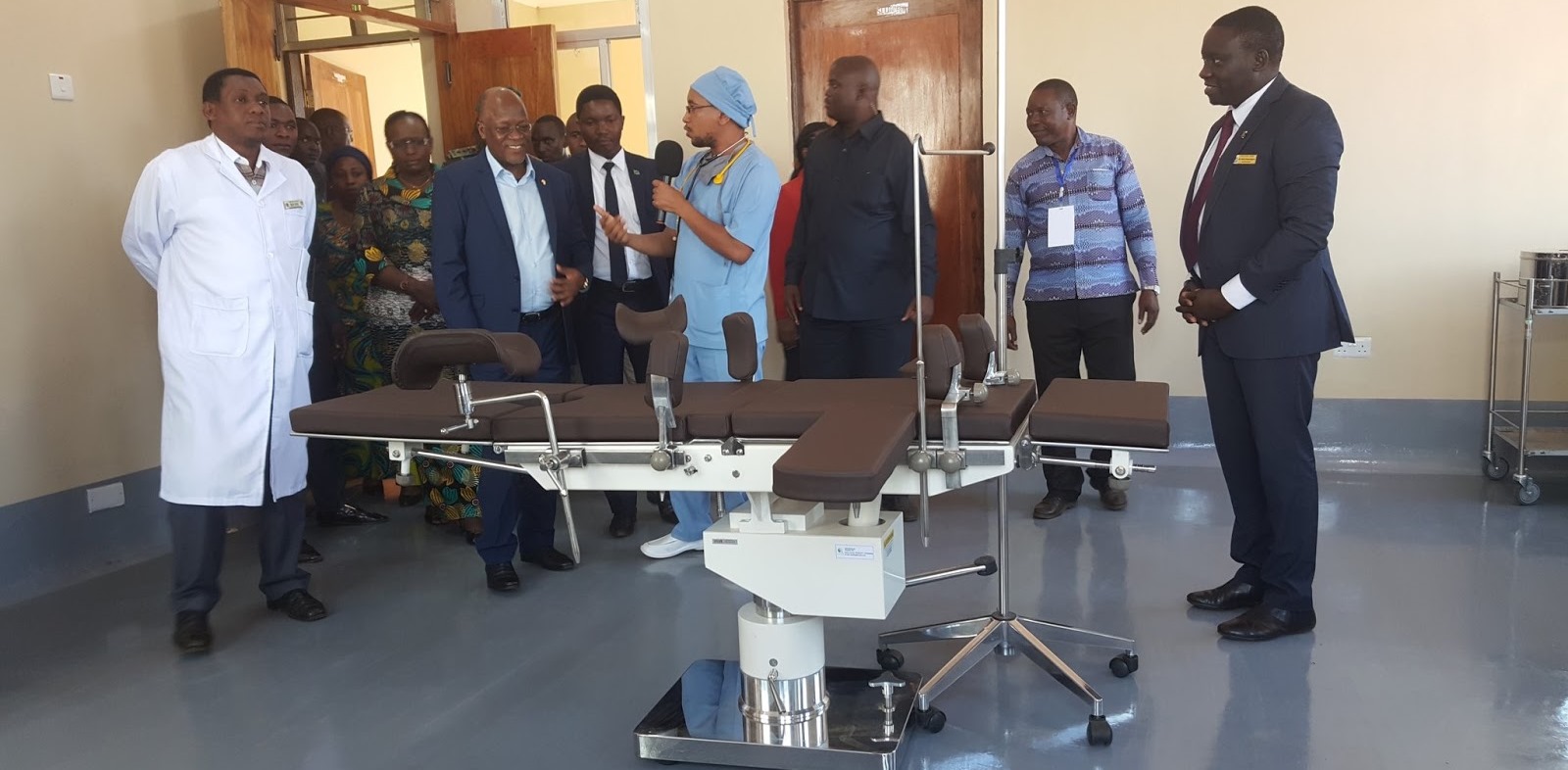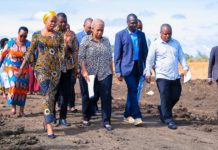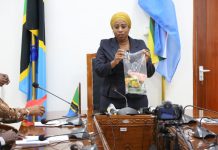Author: LYDIA SHEKIGHENDA
AfricaPress-Tanzania: MASSIVE investments in the country’s health sector have enhanced availability of specialised services, while positioning Tanzania as a healthcare hub for medical tourism.
From the onset, and in tune with the ruling CCM election manifesto, President John Magufuli’s fifth phase government laid bare that big priority would be given to people’s health.
The government’s commitment has been vividly borne out by the introduction of quality health services, which have cut down the number of Tanzanians seeking treatment overseas by more than 95 per cent, while attracting patients from neighbouring countries.
Before the services were introduced at homey, the government spent billions of shillings to cover the cost of medical treatment for Tanzanians, who were referred abroad.
When he assumed office in 2015, President Magufuli issued several directives to the Ministry of Health, Community Development, Gender, Elderly and Children and its institutions, to set out plans that would transform the health sector, including introduction of specialised services, which were not available in the country.
Addressing medical doctors recently, Dr Magufuli said investment in specialised services had reduced the number of patients seeking medical treatment abroad. He said between 200 and 300 patients were referred abroad annually but the number had dropped to less than 60.
Dr Magufuli said that major improvements in the health sector would enable the country become a healthcare hub for medical tourism and thereby earn the government more revenue.
Tabling the budget estimates for the Ministry of Health, Community Development, Gender, Elderly and Children for the 2020/2021 fiscal year, Minister Ms Ummy Mwalimu said the government had improved the services to save the lives of Tanzanians and reduce the number of patients seeking treatment overseas.
She noted that, between July 2019 and March 2020, her ministry received a list of 92 patients from zonal referral facilities and national hospital, who were supposed to be referred abroad and only 53 were approved.
“This is a huge drop compared to 554 referrals which were submitted to the ministry in the 2014/2015 fiscal year of which, 385 were approved for treatment abroad,” she said.
She said currently, the Muhimbili National Hospital (MNH) offers a number of specialised services, such as kidney transplant which has so far benefited 56 patients since it commenced in 2018.
Ms Mwalimu also said that the national facility spent only 1.68bn/- for treating the 56 patients, which is an average of 30m/- for each patient.
“If these patients were referred abroad, the government could have spent 6.72bn/-, which is an average of 120m/- per patient but the availability of such services in the country has helped the government to save 5.04bn/- for treating the patients here,” she said.
The national hospital is also providing cochlear implant services to treat people with complete hearing loss. So far, 30 patients have benefited from the service since 2017 and helped the government to save 1.92bn/- from 3bn/- if they were treated abroad.
The national hospital has also introduced interventional radiology services which have benefited 846 patients at a cost of 6.78bn/- instead of 8m/- per patient if they were treated abroad, thus saving 76.14nb/.
The minister, however, said that plans were also underway by the national hospital to start offering bone marrow transplant after receiving 6.22bn/- from the Ministry of Finance and Planning in June last year.
She added that the hospital had already purchased some equipment and prepared important infrastructure for cell processing and chemo day care.
Ms Mwalimu further said that the fifth phase government had also recorded notable achievements in cardiovascular services by investing in advanced equipment that enabled the Jakaya Kikwete Cardiac institute (JKCI) to handle complicated cases which were being referred abroad.
Currently, JKCI serves patients from across all the regions in Mainland Tanzania and Zanzibar, who are referred from regional referral and designated district hospitals for tertiary level cardio- vascular medical care.
It also receives patients from neighbouring countries such as the Democratic Republic of Congo (DRC), Comoro, Uganda, Kenya, Malawi, Rwanda and Burundi.
She further said that the Ocean Road Cancer Institute (ORCI) has also continued to strengthen its services after installing modern equipment for cancer diagnosis and treatment.
Ms Mwalimu said availability of essential medicines has helped a lot to cut down the number of referrals abroad from 164 patients in 2015/2016 to two in 2019/2020.
Executive Director of the ORCI, Dr Julius Mwaiselage, further explained that the Fifth phase government had invested a lot in cancer diagnosis and treatment at the institute.
In 2018/19, the government invested about 9.4bn/- in purchasing modern machines for cancer treatment, mainly chemotherapy.
Currently, the ORCI has about 60 machines providing chemotherapy treatment to patients. Modern equipment has enabled the institute to serve up to 300 patients who need chemotherapy daily. On other hand, medicines for leading types of cancers are currently available by 100 per cent. This was a result of increased budget for cancer drugs from 770m/- in 2015/16 to the current 10bn/-.
According to MOI Executive Director Dr Respicious Boniface, the institute made great strides in offering specialised services a short period after President John Magufuli had ascended to power.
Before President Magufuli’s leadership, the hospital had only one X-Ray but currently, four X-Ray machines are operating.
In the wake of the purchase of several modern operation facilities, the number of operated patients has increased from between 400 and 500 to between 700 and 900 in a month.







